Another summer writing road trip
Thursday morning found me in Shenandoah National Park, sitting at a picnic table at the Loft Mountain Wayside, where I chowed down a hamburger and fries, took some time to write, then got back in the car to conclude my most recent adventure by stopping at a few overlooks.
The previous Saturday, I had arrived in Norwood, Virginia for a short writing retreat at Porches, an antebellum home near the James River, aptly named for the porches that span the length of all three floors.1 I was in a second-floor room called the “Blue Queen,” where I had a queen-sized bed, sofa, armchair, bookcase, and best of all, a wooden writing desk of perfect dimensions that looked out over the porch. I got a lot of writing done2, conversed with the other writers in the evenings, and held my breath through some brief but epic afternoon thunderstorms.
When I looked up the route prior to leaving Kentucky, I realized that I would be only some 45 minutes from the southern entrance of Shenandoah National Park, which comes up a lot in Ruth’s columns and in our family lore. I decided that it would be foolish to drive that far and not try to visit for at least a little while.
The day before I was to leave Porches and head to the park, I began to wonder how this was going to go. I can be anywhere from somewhat to intensely acrophobic, and the main route through the park, not to mention one of its defining features, is named Skyline Drive. In the end, however, the desire to see at least some of the park won out, not to mention the opportunity to support the National Park Service, which remains heartbreakingly under siege.
I won’t lie. As I started out on the Blue Ridge Parkway, I saw the vertiginous drops and thought, just for a second, “no one is making you do this, Laura.” In the next breath, however, I realized I had zero intention of turning back. I paid my fee at the South Entrance and made my way carefully north, thankful for once to see a low speed limit in place (35 MPH).
By the time I reached Loft Mountain, I needed a nature break, so I pulled into the parking lot and went inside. I had just started looking around the gift shop when I realized that I was incredibly hungry, so went next door to the café and ordered a smashburger and fries.
The burger did not disappoint. At first I thought it was just my appetite talking, but no. This is seriously one of the best restaurant burgers I’ve had in a good long while—perfectly cooked, with just the right amount of cheese melting over the meat, accompanied by a few rings of red onion and a tomato that had obviously been harvested in season.
Still, as I wiped my hands and turned to my notebook, I could not help but feel that something about the experience was just a wee bit off. I thought of my family’s many camping trips, all the meals we cooked on a hibachi grill or over an open fire. I especially thought of the legendary fires built by my grandfather Bob, Ruth’s husband, so noteworthy she once wrote they could have been trademarked.
In the end, it did not change the taste of the burger, but it did make me think, and it made it easier to select a column to share. Let’s travel back to July 19983 for another installment of “Rural Reflections.”
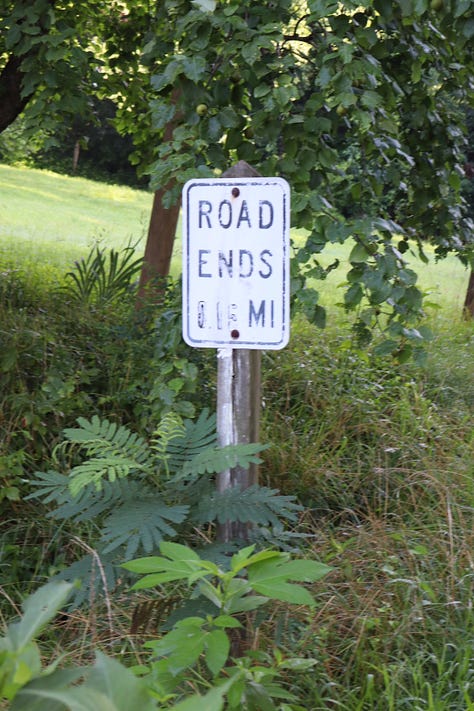
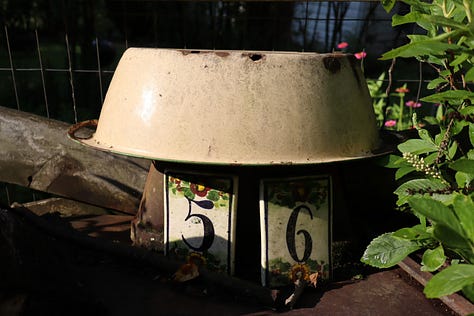
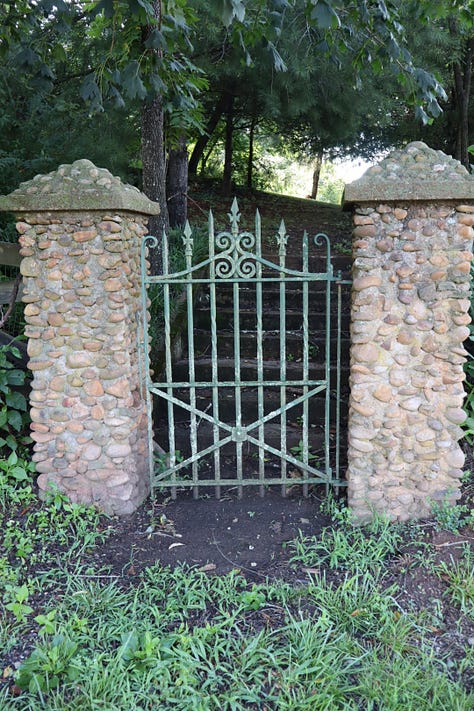
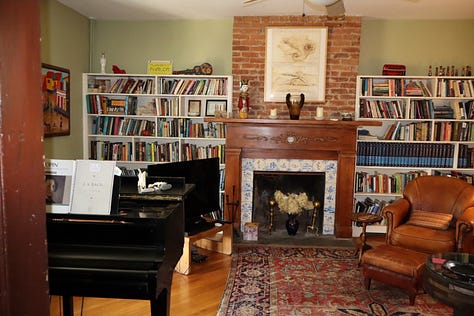
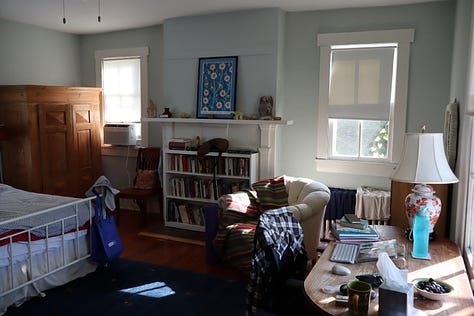
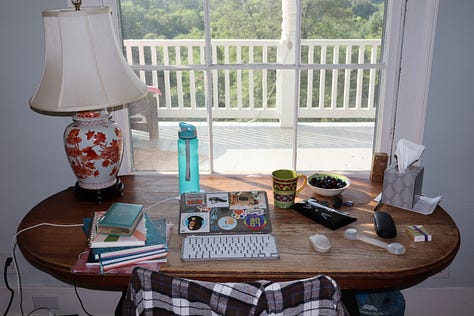
Rural Reflections
By Ruth Dennis
Hot dogs on the grille, potato salad and other summer patterns
Waiting, sometimes not so patiently, for the charcoal to reach the point where it was time to “throw the dogs on the grille” was one of our summer patterns each year.
It made no difference if it was just family and friends—the “script” rarely changed. The potato salad would be stored in the refrigerator, the paper plates and cups waiting on a tray, pitchers of lemonade filled with ice cubes. All that was needed was the charcoal.
My husband often decided that if he poured another “shot” of charcoal lighter the coals would get hot sooner. This usually resulted in a burst of flames, followed by a dash of water to cool it down.
We tried to be patient and refrain from reminding him too often that, “I asked you to start the grille early.”
The wait was always rewarded by that special charcoal taste. Hot dogs, hamburgers, even steaks never have tasted as good as those cooked over a charcoal grille.
Frequently and within hours of the scheduled picnic someone would discover “we are just about out of charcoal” or “there isn’t any lighter fluid.” A quick trip to the local store could solve this problem—if the store was open.
Summer Sundays at Stony Brook Park or Conesus Lake meant not only packing swimsuits, towels, suntan lotion, but making certain the bag of charcoal, the can of lighter fluid and of course the grille were put in. Somehow we preferred our grille to those provided at the parks.
Barbecuing on charcoal grilles has lost its challenge with the more modern versions. Most are lit simply by turning on the propane and lighting the “flue.” The “coals” become hot enough for broiling within a very few minutes. Grilles can be large and have any many attachments. They can be so small that only a tiny tank of propane is needed—at least for one small picnic.
But there is no real replacement for that smell of charcoal as the hot dogs plumped and the hamburgers cooked on the grille. It was all worth waiting for.
We expanded our picnic menus as camping friends initiated us into the many meals that could be cooked over charcoal. Over our trailer camping years, especially along the Atlantic coast, we feasted on fresh fish wrapped in foil and cooked over the charcoal grille.
I admit that barbecuing is much easier now. I admit that a hot dog or hamburger cooked over a “modern grille” still tastes better than one cooked in the more conventional way.
Campfires were another of our summer patterns each year and often were the end to an evening picnic. For several years we picnicked and even camped overnight next to our farm pond where we had built a fireplace and a pavilion. Firewood was close by. We made “s'mores” or just plain toasted marshmallows and watched the stars.
Tradition began during these weekends spent with family and our camping friends. My husband always wanted “a good fire” and was always ready to add another piece of wood. If he was comfortable he might tell someone else, “throw another log on the fire.”
These campfires would often get so hot that we would have to move our chairs back. Often we would play a version of “ring around the campfire” when the wind would blow the smoke in one direction after another. None of this made any difference to my husband. He just delighted in his campfire. Even now when some of family or friends have a particularly large campfire they call it “a Bob Dennis campfire.”
Trailer camping was never complete without several evenings by our campfire. The small bunches of slab wood and the signs “camp wood for sale” always meant we were getting close to our state or national park designation. We had an aversion to resorting to such a source of firewood.
There were other sources and I soon became adept at finding them. At most parks, only “downed wood” was available. This meant going into the woods for branches and limbs that had broken off the trees and were on the ground. I found that “not too far down the fire road,” I could usually find some firewood. I would trudge back to our site, often tired but triumphant with an armful of wood for the night's campfire.
Like other campers I soon learned to take note of those families preparing to leave the next morning. As soon as the trailer pulled out and down the park road I would be at the empty site scouting for “leftover” fire wood. Of course I was not the only one doing this and an "honor system of sorts" was unofficially recognized.
During the years we burned wood to heat our home, we took along our own supply of campfire wood. We never turned home with any. If for any reason we had not burned it all up we gave it to a camping neighbor.4
We met many families around the campfire. Sometimes we were the ones inviting someone to “join us and share our campfire” and sometimes we were the ones being invited. Some of those we shared campfires with have remained good friends.
Campfires have been a part of the trailer rallies we enjoyed. Friendships were strengthened while we sat and relaxed around the fire. As with any campfire gathering there was a reluctance to leave. But finally the last one present would douse the dying embers with a pail of water before going to his trailer.
Hot dogs cooking on the charcoal grille; marshmallows toasted over a campfire. These are the aromas of some of my summer reflections.
Ruth Dennis of Jasper is a columnist for The Sunday Spectator
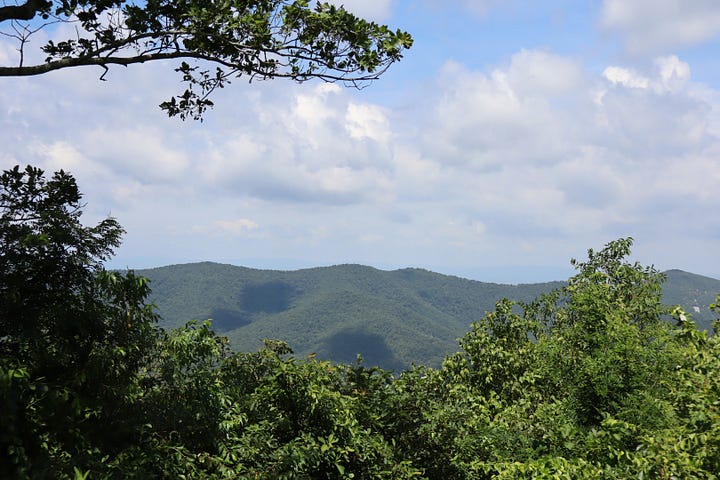

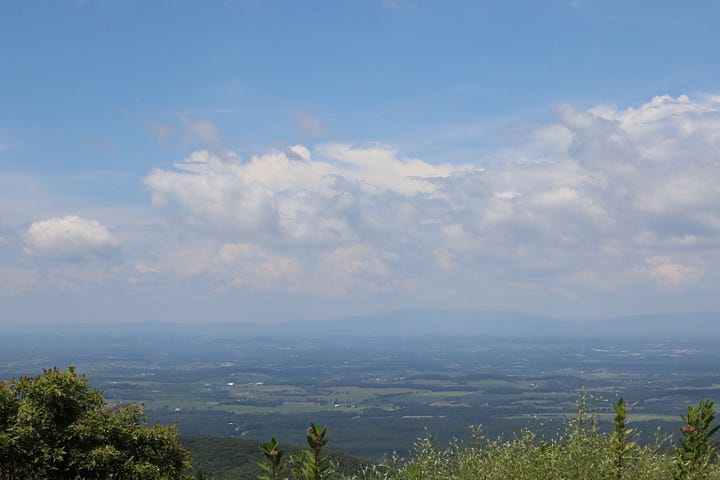
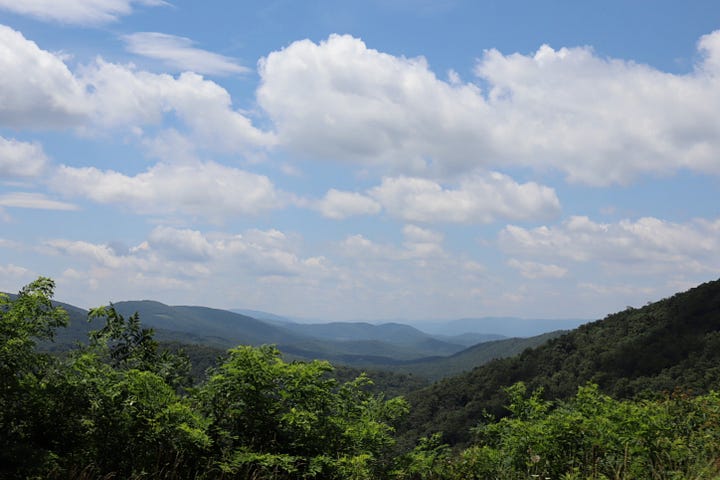
Huge shoutout, once again, to South Arts for the grant that has facilitated all this writing-related travel.
A lot of writing…except for this Substack. If you’re looking forward to reading the book even half as much as I’m looking forward to finishing this draft of said book, then I don’t think missing a week on here is all that bad.
I don’t have any exact date for this one. It is clearly labeled July 9, 98, but that would not have fallen on a Sunday. I figure the July is right, given the topic, and in the absence of other evidence, I have decided to keep it in 1998, at least for now.
NOTE: Nowadays, do not plan to bring your own wood—it can harbor invasive species. Learn more at the NPS website and Don’t Move Firewood, run by The Nature Conservancy.



